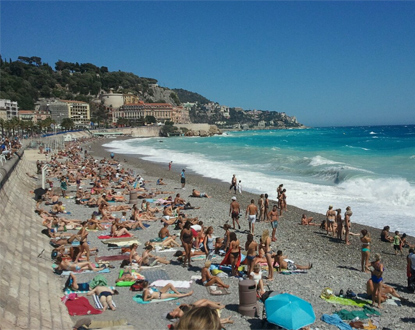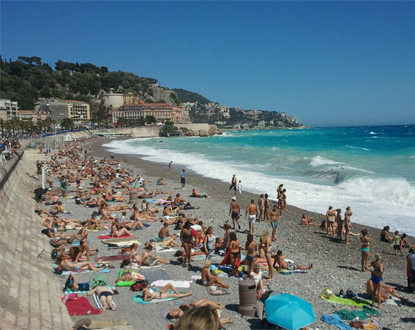The beach operators on the French Riviera feel disadvantaged by the constraints of the 2006 “beach decree,” which reduces the possibility to occupy the beach from 30 to 20% and enforces the obligation to dismantle installations and equipment during the winter period.
While these rules are not currently respected, in the long term, all beach restaurants in the 06 area, including Antibes, Cannes, Nice, and others, will be affected by the application of this decree when their concessions are renewed.
 According to the statements of the interested economic actors, applying this decree will significantly impact the economic activity and employment of the operations, potentially leading to the disappearance of many beach restaurants on the Riviera. However, one must be cautious in this regard, as the saying ‘cry and gain’ is a favorite among complainants.
According to the statements of the interested economic actors, applying this decree will significantly impact the economic activity and employment of the operations, potentially leading to the disappearance of many beach restaurants on the Riviera. However, one must be cautious in this regard, as the saying ‘cry and gain’ is a favorite among complainants.
The law is obviously national, and as such, it is not unfounded to assume that the conditions and constraints of beach establishments in the Alpes-Maritimes differ, depending on the maritime facade concerned, from those in the north and the Atlantic.
The risk for Bernard Kleynhoff, President of the Nice Côte d’Azur Chamber of Commerce, is that today, the situation becomes increasingly untenable for some establishments that have become illegal and face major infrastructure fines and demolition.
And that, driven by a spirit of institutional insubordination, it might even call for some spectacular protest. A belated revival of ’68 on the brink of old age?
The management of the beaches entrusted to the Nice Côte d’Azur Metropolis, as could be anticipated by an amendment already presented and approved by one of the two chambers, could provide a strengthened legal framework and offer hope for harmonization and consideration of our economic peculiarities.
This is Rudy Salles’ position, who is involved on more than one front in this issue, being also the Deputy Mayor of Nice in charge of tourism. Fortunately, the fact that this law was enacted by a former right-wing government minister spares us the hostile approach it would have accompanied had it been formulated by a minister of the current government.
Finally, the action plans envisaged by the operators, led by Nice local René Colomban, aim to find common ground with the ministry(ies) on two options: one, to modify the regulatory framework to create exceptions without challenging the law in its entirety, or to consider the “touristic heritage” concept for certain beaches, which frankly seems a bold proposition!
This is the “state of the art” of a complex situation that will require inventiveness and patience among stakeholders to find a solution that aligns with the legitimate yet “particular” interests of the Riviera beach operators.
Meanwhile, the same beach operators could help themselves by closely examining the management methods of their Italian and Spanish counterparts (with whom they like to compare themselves) and from which the operation of their establishments could yield some useful ideas for benefit.
A dynamic and more articulated service offering policy, for commercial, personal, and entertainment services, could provide far more benefits than deck chairs.
Indeed, with the traditional “sun and sea” formula, Ikea plastic loungers, a Niçoise salad priced at 15/20 euros for lunch, and drinks at 5 euros, one can only be dependent on the weather and a few more or fewer customers.


